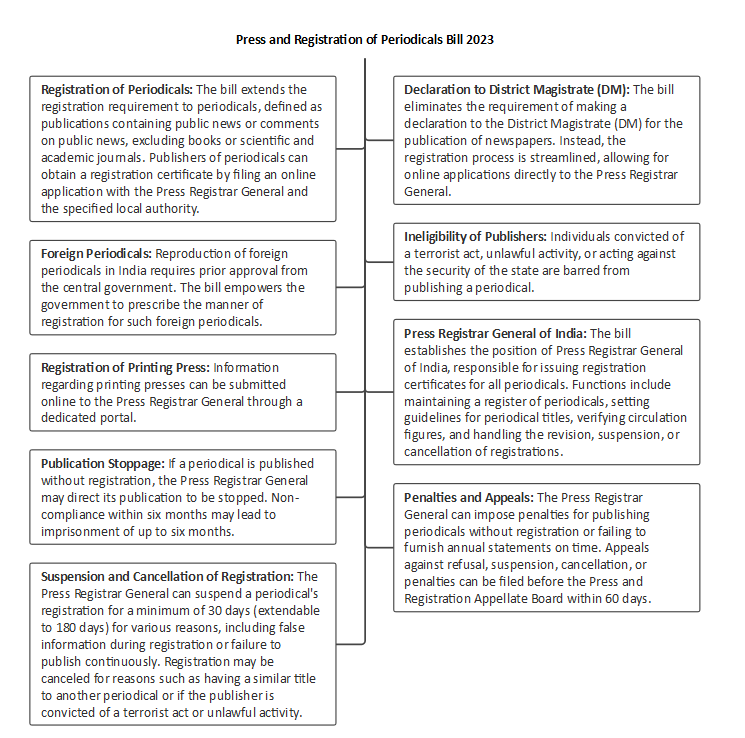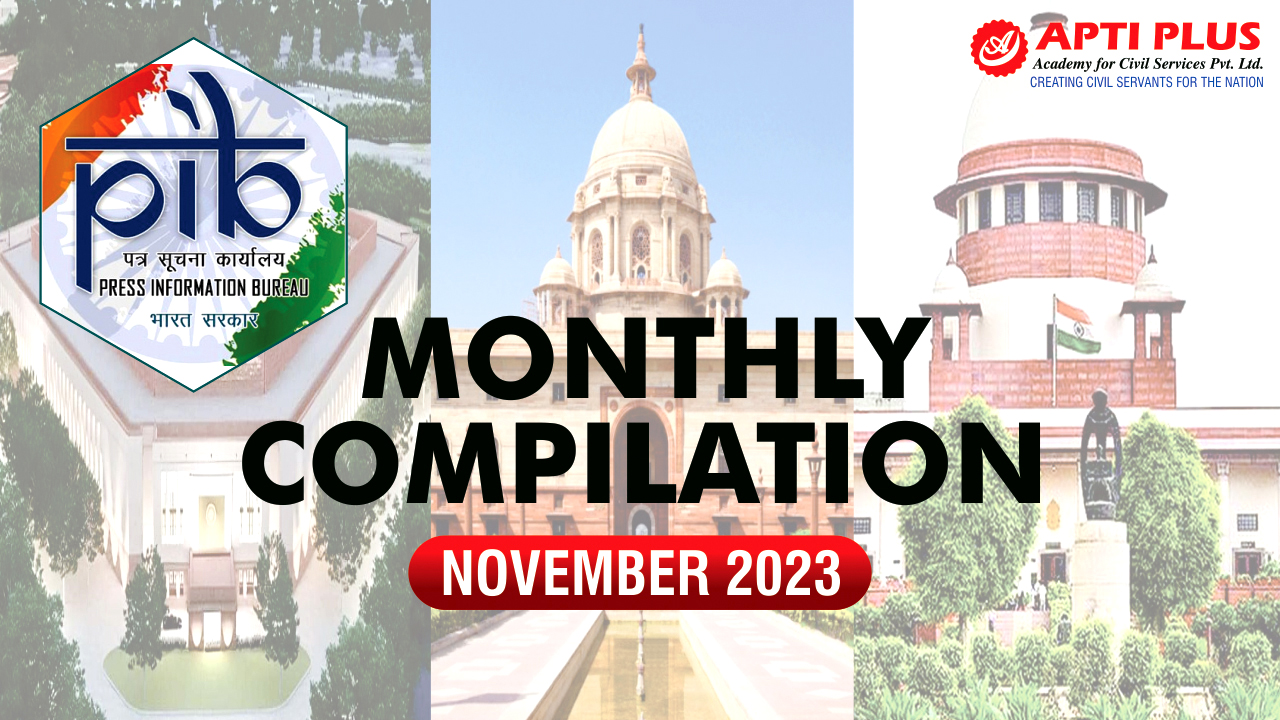Description

Copyright infringement not intended
Picture Courtesy: cjp.org.in
Context: The Press and Registration of Periodicals Bill, 2023 was introduced to streamline the process for publishers and printing press owners while modernizing and decriminalizing certain aspects of the existing legislation.
Objectives of the Bill
- Ease of Doing Business: The primary objective is to make it easier for publishers to operate by removing unnecessary procedural hurdles.
- Simplify Procedures: To eliminate the requirement for frequent declarations before District Magistrates (DMs) and the subsequent filing of revised declarations with every change in particulars.
- Decriminalization Efforts: Efforts have been made to decriminalize the colonial-era statute by replacing convictions with financial penalties for certain violations.

Key Differences from the 1867 Act
- Exclusion of Books: The 2023 Bill excludes books from its scope, as they fall under the jurisdiction of the Ministry of Human Resource Development.
- Penalties and Appellate Mechanism: The new Bill replaces jail terms with fines for most offences and introduces an appellate mechanism headed by the Chairman of the Press Council of India.
- Increased Fines: The upper limit of fines has been significantly increased, from Rs. 2,000 to Rs. 5 lakh.
- Shift in Power: The Bill transfers power from the District Magistrate to the newly created Press Registrar General (PRG). This new position holds significant authority compared to the limited powers of the Press Registrar under the 1867 Act.
Changes in the Declaration and Registration Process
- Simplified Procedures: The declaration process with the DM or local authorities has been eliminated. Instead, an online "intimation" suffices for printing presses.
- Simultaneous Processing: Applications for title allotment and registration can now be processed simultaneously, reducing administrative burdens.
- No-Objection Requirement: The need for no-objection from a specified authority has been removed for most registrations, except for periodicals proposed to be published by the government.

UAPA Provision
- Restrictions on Publishing: The Bill restricts individuals convicted of terrorist acts, unlawful activities, or actions against state security from publishing periodicals. This aligns with definitions from the Unlawful Activities (Prevention) Act 1967, defining terrorist acts and unlawful activities threatening national unity, sovereignty, or security.
Conclusion
- The bill introduces a more efficient and digitized system for registration and regulation of periodicals while incorporating measures to ensure compliance and penalize violations. The provisions also address issues related to the titles of periodicals and the eligibility of publishers, emphasizing the importance of national security and accuracy in information dissemination.

|
PRACTICE QUESTION
Q. What are the current challenges faced by journalists in India regarding press freedom, and what measures can be taken to ensure a more open and unrestricted environment for the media?
|










